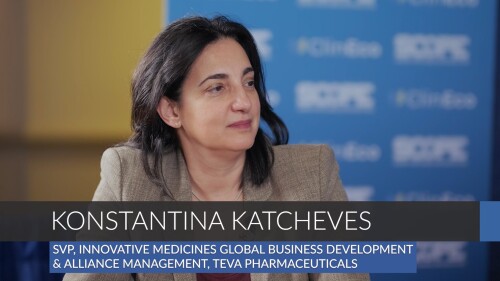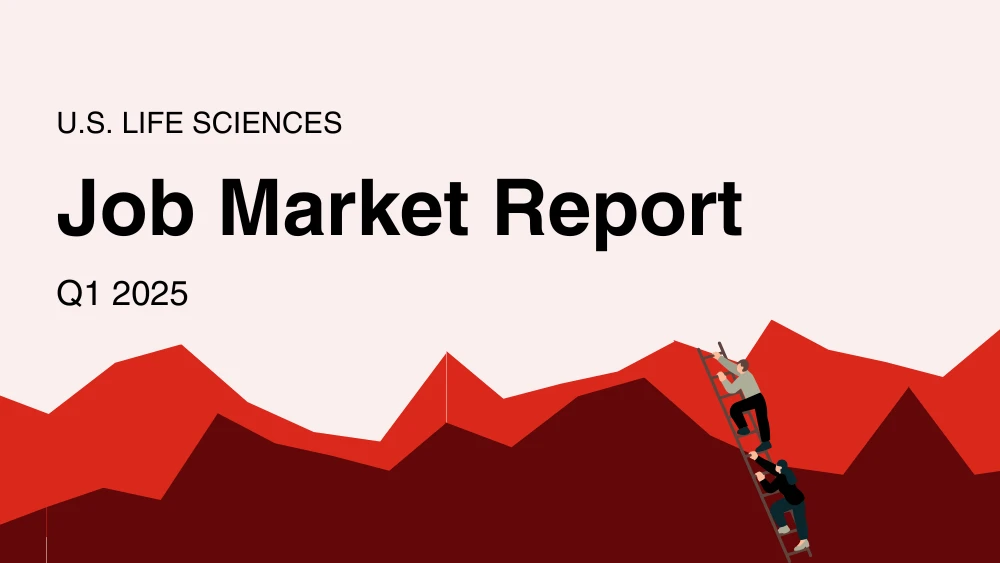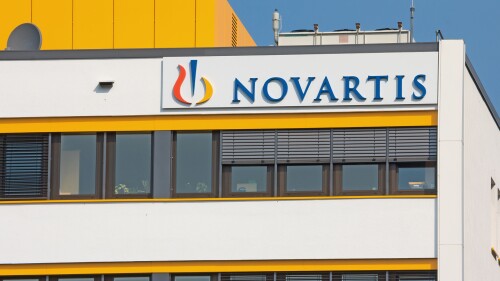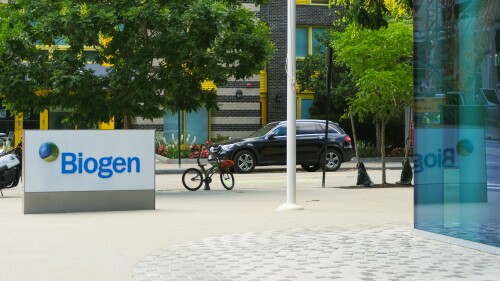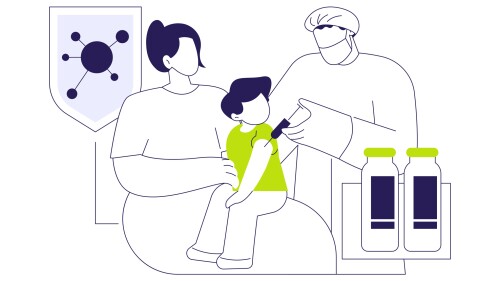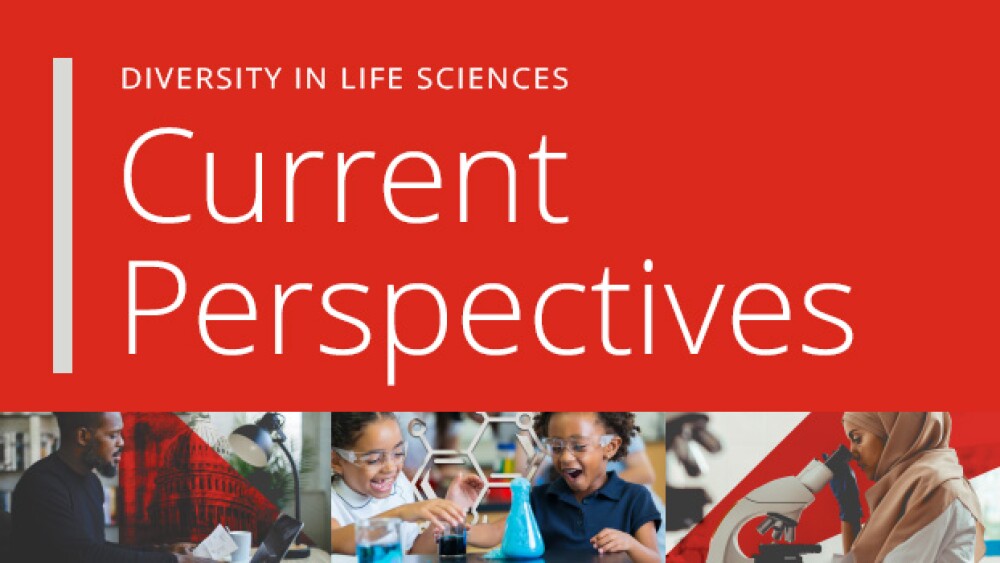The FDA has informed Merck, Sanofi and AstraZeneca of the safety investigation into their RSV antibodies, though it remains unclear what regulatory action, if any, will be taken.
The Commissioner’s National Priority Voucher program was launched in June to shorten review times for companies that align with various national priorities, such as improving domestic drug production and supply.
Pfizer deals again in obesity space as Wave and Structure drop splashy weight loss results; what CDER Director Richard Pazdur’s sudden retirement means for biopharma; neuro diseases take center stage at CTAD; and more.
Saol Therapeutics received a complete response letter for its pyruvate dehydrogenase complex deficiency treatment a week after the FDA unveiled its Rare Disease Evidence Principles program. On Dec. 18, in a Type A meeting, the biotech will attempt to convince the agency that its drug fits perfectly into the framework.
TERN-701 more than doubled the response rate of Novartis’ rival approved therapy in an early-stage trial, sending the biotech’s shares flying.
Pfizer apparently had more in the tank after the high-profile battle to acquire Metsera earlier this fall. The company has licensed a new GLP-1 from YaoPharma.
FEATURED STORIES
A new generation of companies is eyeing the existing, sizeable hair loss market, hoping that better formulations and new scientific targets will finally produce treatments that are safer and more effective, as well as commercially successful.
The nausea and other gastrointestinal side effects of weight loss drugs like Novo Nordisk’s Wegovy or Eli Lilly’s Zepbound will limit how much these drugs can help patients and stunt the overall obesity market unless we approach the problem head on.
While investment has slowed in radiopharmaceuticals, analysts predict increased interest to come as Novartis shows just how successful radiopharmaceuticals can be.
The upheaval of the Health and Human Services workforce and leadership leaves much to be desired in terms of delivery, recently retired FDA Chief Information Officer Vid Desai tells BioSpace, but the regulatory agency is evolving to be more open to much needed change.
Had Pfizer’s Freda Lewis-Hall not stepped in, SpringWorks’ rare disease treatment may never have reached patients. Pharmas can act now to help find the next Gomekli.
Having seen Congress spend money to onshore semiconductor production, pharma groups are pushing for similar incentives for domestic drug manufacturing.
LATEST PODCASTS
The White House is clamping down on pharma’s ability to buy new molecules from Chinese biotechs; Sanofi, Merck and others abandon the U.K. after the introduction of a sizeable levy; Novo CEO Maziar Mike Doustdar lays off 9,000 while the company presents new data at EASD; Capsida loses a patient in a gene therapy trial; and CDER Director George Tidmarsh walks back comments on FDA adcomms.
This week’s release of the Make America Health Again report revealed continued emphasis on vaccine safety; Health Secretary Robert F. Kennedy Jr.’s faceoff with senators last week amounted to political theater; the FDA promises complete response letters in real time and shares details on a new rare disease framework; and Summit disappoints at the World Conference on Lung Cancer in Barcelona.
In this episode presented by Taconic Biosciences, BioSpace’s head of insights Lori Ellis discusses how preclinical research companies are helping drug developers navigate the current challenging funding environment with Mike Garrett, CEO.
Job Trends
Year-over-year BioSpace data show biopharma professionals faced increased competition for fewer employment opportunities during the first quarter of 2025.
Subscribe to GenePool
Subscribe to BioSpace’s flagship publication including top headlines, special editions and life sciences’ most important breaking news
SPECIAL EDITIONS
In this special report, BioSpace examines how the biopharma industry is grappling with impending consequences of the Inflation Reduction Act.
DEALS
-
Vas Narasimhan confirmed that Novartis is having weekly discussions with the Trump administration on drug pricing, but a deal has not yet been reached.
-
The deal, announced early Sunday afternoon, will see Novartis gain access to Avidity’s neuroscience assets, while the San Diego biotech spins out a new company to shepherd its early-stage precision cardiology programs.
-
The $70 million upfront deal adds to a portfolio of drugs Biogen has been growing in various immunological conditions since 2024.
-
The cornerstone of the deal is Ixo-vec, an intravitreal gene therapy currently in Phase III development for wet age-related macular degeneration. Eli Lilly made another foray into genetic medicine in June, picking up Verve Therapeutics for up to $1.3 billion.
-
With Avadel under its fold, Alkermes expects to accelerate its expansion into the sleep market, laying the foundation for its late-stage narcolepsy asset alixorexton.
WEIGHT LOSS
-
Pfizer called Novo’s offer “reckless and unprecedented,” in a statement issued Thursday morning.
-
The reprioritization initiative extends Aldeyra’s cash runway into the second half of 2027.
-
Viking Therapeutics CEO Brian Lian is watching the growth of interest in MASH and obesity but prepared to go it alone.
-
Two patients experienced grade 3 liver enzyme elevations that were deemed related to Terns’ investigational obesity pill TERN-601.
-
Rybelsus can now be used as a primary or secondary prevention pill to lower the risk of major adverse cardiovascular events in at-risk patients with type 2 diabetes.
POLICY
-
Though details remain scant, the pending order is expected to be the latest effort in President Donald Trump’s campaign to bring drug prices down to the same level as economically similar countries.
-
While last week’s recommended changes by CDC advisors to the MMRV vaccine schedule are unlikely to have a tangible effect on Merck’s business, the company said the removal of choice for healthcare providers is “concerning.”
-
The FDA’s proposed Rare Disease Evidence Principles review process is a starting point for getting rare disease therapies across the finish line, but industry leaders say there are more concrete steps the regulator could take to help patients.
-
After a tension-packed two days that saw recommended changes to the MMRV vaccine schedule and COVID-19 vaccine access, as well as a delayed hepatitis B vaccine vote, policy experts expressed concern with the reconstituted committee’s dearth of previous experience and understanding of their role.
-
BMO Capital Markets analysts said the first day of the CDC vaccine advisory committee meeting Thursday had anti-vaccine overtones as the panel, which was revamped by Health Secretary Robert F. Kennedy, Jr. in June, voted to recommend that children under four receive the measles, mumps, rubella (MMR) vaccine separately from a chickenpox vaccine. Today the advisors will vote on changing the childhood schedule for the hepatitis B and COVID-19 vaccines.
Managers face a variety of challenges during their careers. Instead of falling into fight or flight, develop resilience to navigate the uncertain moments that pop up from time to time.
In our comprehensive guide to salary negotiation, we’ll teach you what a market salary is, how to research a market value salary and, ultimately, how to negotiate your salary according to market value.
During the job application and interview process, candidates who lie to prospective employers and those who don’t properly highlight their accomplishments can find it difficult to land—or keep—their next role. We asked experts how to sell yourself positively and honestly.
Dealing with a toxic co-worker can be exhausting, and it can make your workplace more stressful. There are a few ways to make it easier, including developing healthy coping mechanisms and even talking it out with your colleague.
Job security is a hot topic among biopharma professionals. A career coach offers advice for how to evaluate and build it up and what to do if that evaluation leaves you worried.
Good company culture is a crucial aspect of professional life. Look at these 11 important indications of good workplace culture before accepting a job offer or use them to evaluate your new employer.
HOTBEDS
REPORTS
In the 2020 US Life Sciences Diversity & Inclusion report, BioSpace dives into how different segments of employees experience and perceive policies, attitudes and actions. Our data suggests that there are significant disparities between segments.
BioSpace surveyed our community to gain their insights and perspectives on work, their employers, and to understand who makes up the life science community.
How does being Black affect the workplace experience as a life sciences professional? BioSpace surveyed our community to gain a greater understanding of Black employees’ feelings of inclusion and their perspectives on employer DEI initiatives.
CANCER
-
Roche will gain worldwide rights outside of the Greater China region to Hansoh’s HS-20110, an antibody-drug conjugate in early-stage development for colorectal cancer.
-
2025 has been a busy year for Boehringer Ingelheim, which has so far inked at least five hefty partnerships—including its latest one with South Korea’s AimedBio for an antibody-drug conjugate therapy for cancer.
-
The startup, launched out of CEO Kevin Parker’s grad school idyll during the COVID lockdowns, is primed to find new targets where Big Pharmas won’t dare.
-
Moderna’s mRNA-4359, when used with Keytruda, achieves a 24% overall objective response rate in patients with melanoma, with efficacy increasing to 67% in those positive for PD-L1.
-
Looking for a job in oncology? Check out the BioSpace list of nine companies hiring life sciences professionals like you.
NEUROSCIENCE
-
The company is dropping its social anxiety disorder program but will still test the molecule in post-traumatic stress disorder.
-
Bristol Myers Squibb and insitro first partnered in 2020 to develop induced pluripotent stem cell models of amyotrophic lateral sclerosis and frontotemporal dementia. Last December, BMS exercised its option for an ALS target.
-
Elecsys’ approval could help boost the uptake of currently approved Alzheimer’s disease therapies, including Biogen’s Eisai-partnered Leqembi, with CEO Chris Viehbacher recently noting that such biomarker-based tests could “remove some of the bottlenecks” in uptake.
-
The centerpiece of the deal is orelabrutinib, a BTK inhibitor in late-stage development for multiple sclerosis that Biogen once paid $125 million for but abandoned after less than two years of testing.
-
MapLight laid out the terms of its planned IPO in a regulatory filing on Monday, providing greater detail about what the funds will be used for.
CELL AND GENE THERAPY
-
Rocket Pharmaceuticals’ strategic realignment initiative in July pulled funding from fanca-cel, which the biotech was developing for Fanconi anemia.
-
The centerpiece of the collaboration is the gene editor ABO-101, being developed for primary hyperoxaluria type 1, a rare disease that leads to severe kidney stones.
-
As industry leaders gather at the annual event in Phoenix, the cell and gene therapy space remains in a state of flux, with M&A activity and regulatory support signaling momentum while commercialization challenges continue to hinder broader investor interest.
-
Smarter design through targeted delivery and human-relevant testing can save the industry from costly safety failures.
-
Following up on previous, dimly received issuances, a new set of ideas published by the FDA to streamline regulatory pathways for cell and gene therapies ‘for small populations’ is receiving a warmer welcome—but experts warn it will take more to turn the tide for the fraught therapeutic space.












































































